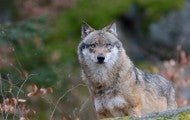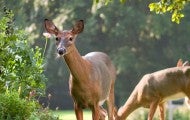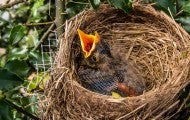WASHINGTON - The Humane Society of the United States released today the results of a disturbing undercover investigation into two wildlife killing contests in Frederick County and in Waldorf, Maryland. Investigators documented the judging portions of the events, with participants lining up rows of...
Today, the New York state legislature passed a bill that ends inhumane wildlife killing contests, in which participants compete to kill the most, the heaviest and the smallest animals for cash and prizes. In 2018 and 2020, the Humane Society of the United States released undercover investigations...
Do your homework So you’ve decided to add a new pet to your family. First, you should answer some questions: What kind of pet will be the best fit for your household? Do you have enough time to devote to the daily needs of a dog? Is there someone in your household who is allergic? What about a non...






